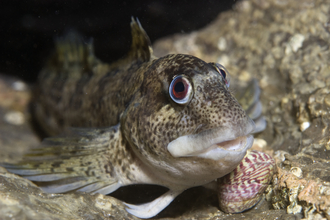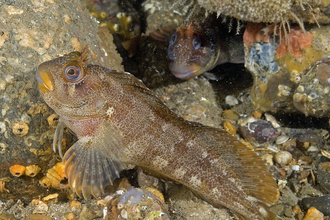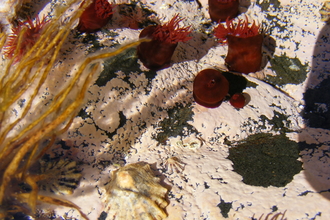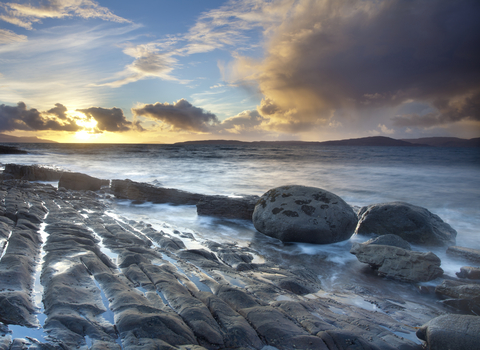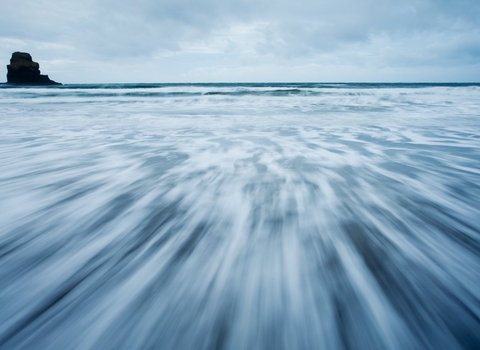
Montagu's blenny © Paul Naylor www.marinephoto.co.uk
Montagu's blenny © Matt Slater
Montagu's blenny
A small fish found on rocky shores in the south and west of Britain.
Scientific name
Coryphoblennius galeritaWhen to see
January to DecemberSpecies information
Statistics
Length: Up to 8cmConservation status
Uncommon
Habitats
About
Montagu's blennies are found around the coasts of southwest Britain, where they're at the northern limit of their range. They live on wave-battered rocky shores, often in rock pools on the shore itself. They can even survive spending some time out of the water at low tide, sheltering under rocks and seaweed and breathing air.Montagu's blennies are most active during the day, especially at high tide. They mainly feed on algae and barnacles, biting off the food-catching limbs that stick out from their shells, though younger fish have more varied diets.
In Britain, Montagu's blennies breed in summer. Males attempt to attract females with a courtship display, rocking their head from side to side. If a female is impressed, she lays clumps of eggs that stick to rocks. The male guards the eggs and fans them with his tail to keep them aerated.
How to identify
A small fish with a long, slender body and prominent eyes on top of its large head. It has a single dorsal fin running the length of its back, with a clear notch part way along. It's skin is pale brown with dark green patches, and covered in blue-white spots.Montagu's blenny can be told apart from other similar blennies by the fringed crest on its head, between its eyes. Tompot blennies have two head tentacles instead, whilst common blennies (also called shannies) have no crest or tentacles.

